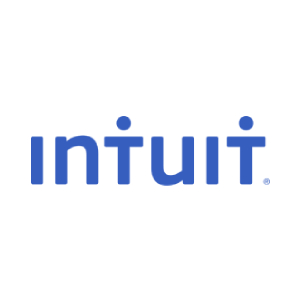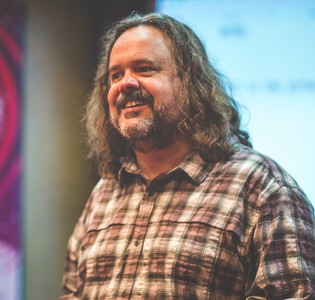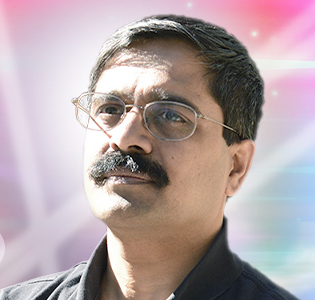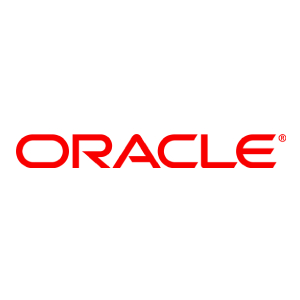Seven Pillar DevOps: Navigating Evolution & Insight (Part 2 of 3)

In Part 1 of our series, we delved into the foundational pillars of Unity and Progress, drawing parallels between the timeless wisdom of Emperor Ashoka and the principles of DevOps. As we continue our journey, we explore the next set of pillars that emphasize continuous evolution and the power of effective communication. If you missed Part 1 of this series, click here to catch up.
Continuous Learning & Adaptability: The Third Pillar of Enlightenment
Emperor Ashoka's adoption of Buddhism marked more than a religious transformation; it embodied a commitment to continuous learning, introspection, and adaptability. In the world of DevOps, professionals must emulate this commitment to remain at the vanguard of innovation.
a. Stay Curious
Sakshi, a seasoned DevOps engineer, recognizes that while her current tools and practices have served her well, the technology landscape is rapidly evolving with newer, more efficient methodologies. To stay ahead, she allocates dedicated time each week to explore emerging DevOps trends. Subscribing to industry newsletters and actively participating in webinars keeps her constantly informed and adaptable.
Sakshi's proactive approach to exploring emerging DevOps trends highlights the importance of continuous learning. By dedicating time to stay informed and adaptable, she exemplifies the spirit of this pillar, where curiosity is the driving force behind professional growth and innovation.
b. Participate in Workshops
Pinal, enticed by the potential of containerization, seeks to gain practical knowledge beyond theoretical understanding. He takes proactive steps by enrolling in hands-on workshops focused on Docker and Kubernetes. Through these workshops, Pinal not only gains invaluable insights but also hones his skills through direct interaction with industry experts.
Pinal's hands-on approach to gaining practical knowledge through workshops demonstrates the value of experiential learning. By actively engaging with Docker and Kubernetes, he embraces the essence of this pillar, using direct interaction with experts to enhance his skills and insights.
c. Join DevOps Communities
Harini, a DevOps veteran, firmly believes in the collective wisdom of the community to address unique challenges. To harness this collective intelligence, she actively engages with DevOps communities on platforms such as Stack Overflow and Reddit and interacts with her peers and experts in-person at event such as yours truly’s Great International Developer Summit that brings together 5000+ software practitioners and DevOps professionals each year. By participating in discussions and sharing experiences, Harini taps into global insights, enabling her to refine her approaches based on shared knowledge.
Harini's engagement with DevOps communities reflects the power of collective wisdom in addressing challenges. By sharing experiences and tapping into global insights, she exemplifies the essence of this pillar, leveraging shared knowledge to refine her approaches and make informed decisions.
Git: Pillar of Enlightenment in Action
The evolution of Git stands as a compelling testament to the spirit of continuous learning and adaptability in the world of DevOps. Git, initially developed by Linus Torvalds in response to the specific needs of the Linux kernel team, offers a remarkable illustration of these principles in action.
- Origin and Necessity: Git's journey began with a pressing need. The Linux kernel team required a version control system that could effectively manage the sprawling and collaborative development of the Linux kernel. Recognizing this need, Linus Torvalds embarked on the development of Git.
- Continuous Improvement: What sets Git apart is its capacity for continuous improvement. Torvalds didn't stop at an initial release; he encouraged an open-source community to contribute to its development. This collaborative approach ensured that Git could evolve rapidly to meet emerging challenges and needs.
- Global Adoption: Git's adaptability and ability to incorporate improvements swiftly led to its global adoption. It extended beyond its initial purpose, becoming an indispensable tool not only for the Linux kernel but for countless developers worldwide. Its widespread usage in diverse software development projects showcases its adaptability to different contexts.
- Resilience and Innovation: Git's robustness and resilience in handling complex version control tasks reflect its adaptability to evolving software development landscapes. Its success endorses the enduring value of adaptability and innovation, proving that a tool designed for one specific need can evolve to become a foundational component of modern software development.
The journey of Git underscores the essence of the continuous learning and adaptability pillar. It serves as a powerful reminder that embracing change and innovation can lead to the development of tools and practices that transcend their original purpose and positively impact the entire software development community.
Communication: The Fourth Pillar of Harmony
Following the Kalinga war, Emperor Ashoka championed open communication, utilizing the Pillars of Ashoka to transparently convey his edicts and vision. In the world of DevOps, clear communication acts as the adhesive that binds teams together, guaranteeing smooth operations and the success of projects.
a. Practice Active Listening
Rajesh's eagerness to present a solution once led to the oversight of crucial inputs from his colleagues, resulting in misunderstandings. To rectify this, he adopted active listening, ensuring he captures diverse perspectives and integrates valuable feedback.
Rajesh's transformation from an eager contributor to an active listener demonstrates the profound impact of this pillar. By ensuring he captures diverse perspectives and integrates valuable feedback, he embodies the essence of effective communication in DevOps. His journey highlights the significance of active listening as a cornerstone for fostering team cohesion and avoiding misunderstandings.
b. Engage in Constructive Discussions
When differing views between Miya and Rakesh regarding a deployment strategy led to a deadlock, the team recognized the need for structured discussions. This approach fosters mutual respect and collaborative problem-solving.
The team's shift towards structured discussions in the face of differing views, as observed with Miya and Rakesh, embodies the essence of this pillar. This approach not only promotes mutual respect but also fosters collaborative problem-solving. It underscores the significance of open dialogue as a means to break deadlocks and drive projects toward successful outcomes.
c. Articulate Clearly
Jhanvi's use of technical jargon in explaining an infrastructure change left non-technical stakeholders bewildered. To address this issue, she honed her communication skills, employing relatable analogies to simplify complex concepts, thereby ensuring clarity and understanding.
Jhanvi's commitment to improving her communication skills by replacing technical jargon with relatable analogies stands as a testament to the core of this pillar. Her efforts in ensuring clarity and understanding among non-technical stakeholders reinforce the pivotal role of clear articulation in DevOps. This transformation exemplifies how effective communication bridges gaps and ensures everyone is on the same page, contributing to project success.
Pillar of Harmony in Action
Atlassian, a globally renowned software company, serves as an exemplar of how open communication can be the linchpin of success in the tech industry. Their commitment to "playing as a team" goes beyond a mere catchphrase; it permeates every facet of their organizational culture.
Within Atlassian, teams comprising diverse roles, from developers to marketers and beyond, are encouraged to collaborate openly and transparently. This open communication ethos finds expression in several concrete practices:
- Cross-functional Teams: Atlassian actively promotes cross-functional teams where members from various disciplines work together on projects. This approach ensures that different perspectives are considered, leading to more innovative solutions.
- Regular Stand-up Meetings: Teams engage in daily stand-up meetings where everyone has the opportunity to discuss progress, challenges, and ideas. This open forum encourages active listening and the exchange of valuable insights.
- Shared Knowledge Repositories: Atlassian maintains comprehensive knowledge repositories accessible to all employees. This means that information is not siloed but readily available for anyone who needs it, promoting transparency and informed decision-making.
- Open Feedback Culture: Feedback is encouraged and valued at all levels. This ensures that concerns can be raised, improvements suggested, and ideas shared without fear of reprisal.
These communication practices at Atlassian foster a harmonious and productive environment where individuals from different backgrounds and roles can work together seamlessly. This alignment across diverse roles underscores the pivotal role of open communication in not just achieving project success but also driving the company's remarkable overall success in the software industry.
Ashoka's Pillars served as communication bridges, fostering harmony and shared vision. Similarly, in DevOps, effective communication bridges gaps, ensuring team harmony and project success. As we've navigated the pillars of Enlightenment and Harmony, stay tuned for our concluding installment next week, where we'll uncover the final pillars, drawing our journey to a close.
Have questions or comments about this article? Reach out to us here.
Banner Image Credits: Attendees at Great International Developer Summit









